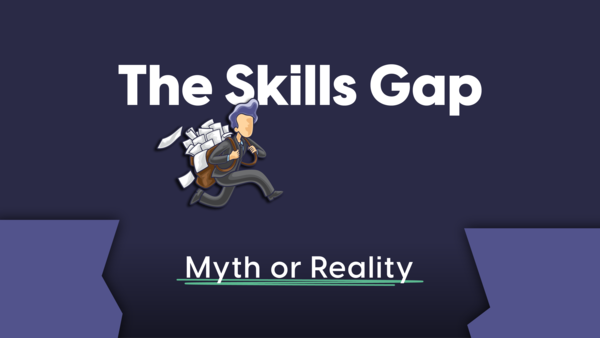There has been a lot of talk recently about the so called talent shortage in the UK and in the US. Some people say that it’s a myth, while others swear by its existence. So, what’s the truth? Is there really a talent shortage, or not? We’ll take a closer look at the evidence and try to answer that question once and for all.
There’s no doubt that skills gaps exist in certain industries and occupations. For example,
figures reported by the Recruitment Employment Confederation (REC), suggest that UK employers identify filling engineering and technical roles as one of their top three most challenging functions. This skills gap is largely because not enough people are being trained in these fields. As a result, employers are finding it difficult to fill vacant positions.
There’s also evidence to suggest that the skills shortage is having a negative impact on economic growth. A recent study by Deloitte found that the skills gap is costing the UK economy billions of pounds every year. The study found that businesses are struggling to find workers with the right skills, and this is hampering their ability to grow and compete.
Skills Gap Vs. Talent Shortage
It’s important to remember that skills shortages are not the same as talent shortages. A skills shortage simply means that there is a lack of people with the necessary skills for a particular job. A talent shortage, on the other hand, would mean that there is a lack of people with the natural ability or aptitude for a certain job.
So far, there is little evidence to suggest that there is a talent shortage in the UK. However, we shouldn’t take that to mean there isn’t a skills gap. Respondents of Monster’s annual global survey indicated IT and strategic planning were the most challenging hard-skills to find, while teamwork and communication were the top soft-skills gaps.
Bridging the Skills Gap
Some employers are attempting to bridge the skills gap by being more open to hiring candidates with transferrable skills and then training them. The big problem is that half of employers say job seekers need to do better when it comes to articulating the transferable skills they have. So, if you’re looking for a job, don’t be put off by the skills gap. There are plenty of opportunities out there for those who can showcase their transferrable skills and qualifications.
There is often debate surrounding whether a skills gap or talent gap is to blame for the lack of qualified candidates for certain jobs. However, regardless of the root cause, the result is the same: there is a need for more people with the skills to fill these roles. One way to address this issue is to invest in career growth opportunities for employees. This can include things like training programs and mentorship opportunities. By giving employees the tools they need to grow their skillset, businesses can help to close the gap and elevate both individuals and the economy as a whole.
Retaining Top Talent
When it comes to attracting and retaining top talent, perks and benefits can be key differentiators. While salary and job title are important considerations, employees also value perks that make their lives easier and more enjoyable. Some common perks that can be offered as part of an employment contract include:
- Flexible working hours: allowing employees to set their own work hours within certain parameters can improve work/life balance and increase productivity
- Remote working or hybrid working: with advances in technology, more and more employees can work remotely. Offering this option can help attract top talent who may not be able or willing to commute to an office every day
- Paid time off: in addition to statutory leave entitlement, offering paid time off for personal days and family emergencies can show employees that you value their well-being
Conclusion
There is a challenge for specific sectors to find people with the right skills, but that does not mean there is a shortage of talented people. Employers may need to be more flexible on experience and qualifications and can make use of the talented pool of candidates through training and mentorship. With the right approach, employers can find untapped potential in their workforce and fill the skills gap. What strategies will you put into place to bridge the skills gap in your workplace?
What do you think? Is the talent shortage a myth or reality?
